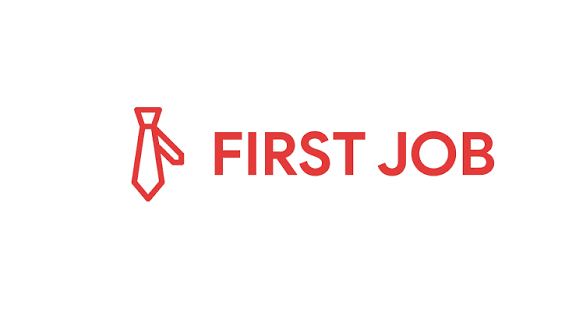Surviving your First Job When You Have Zero Experience in Life

Walking into a first job after graduating feels like arriving in a new city where nobody handed you a map. You’ve done your NYSC, written exams, submitted assignments and maybe even interned, but nothing really prepares you for the day when you’re expected to show up and work to be paid. In many African contexts, that first role carries not just career weight, but family expectations, societal pressure and the reality of trying to “make it” in a market that doesn’t always reward beginners.
This transition is often more jarring than imagined, yet, for many employers, hiring entry-level talent isn’t about finding perfect professionals. The first job is less of a test of what you already know, and more of an invitation to learn, adapt and build. So, how do young professionals with little to no real-world work experience navigate this critical phase?
Recognizing That Inexperience Is Expected
In many labour markets, first jobs are rarely about deep expertise. Companies often hire fresh graduates with the expectation that they will learn on the job, develop practical skills and gradually adapt to workplace realities. Entry-level roles are designed for growth, not perfection, and employers generally understand that early-career workers will make mistakes as they navigate unfamiliar tasks and corporate culture.
Organisations in Africa frequently face the dual challenge of developing talent while managing limited resources, which means that hiring a graduate is as much an investment in potential as it is in immediate output. Employers often look for creativity, curiosity and the willingness to learn.
For new graduates, this understanding is crucial. Aligning your expectations with your organisation’s approach helps you grasp what “good” looks like for someone at your level, rather than comparing yourself to colleagues with years of experience. Rather than attempting to “fake it till you make it,” recognizing that your role is primarily about learning can foster a more sustainable and humble entry into professional life.
A Hidden Curriculum
Workplace culture is rarely documented, but it shapes everything: who meets with whom, how decisions are made and even how information travels. For a first-time worker, decoding this matters more than mastering technical tasks. In Africa, offices operate with layers of formality, power structures and social codes that may not mirror what one experienced in school. New employees often benefit from being quiet observers first. By watching who gets involved in meetings, when people defer to one another and how feedback is given, beginners can chart a path for meaningful participation. The smartest move is not always to speak first, but to listen, internalize and respond when the rhythm makes sense.
Over time, this observational strategy helps newcomers understand not just what work is expected, but how work actually gets done. It’s not about changing the system overnight, it is about aligning with it where necessary, while gradually asserting your own voice.
Learning Through Repetition, Not Perfection
Competence is a factor that is built over time. For new employees, early assignments such as writing internal reports, doing basic research or coordinating small project tasks might feel trivial. But these are not filler jobs; they are foundational. Employees are expected to take initiative and ask for more responsibilities once they complete assigned tasks. This shows that competence is not just about doing what’s asked, it is about showing readiness to grow.
Keeping a record of tasks is also important. This log helps new professionals make sense of their daily progress, and it provides concrete evidence for performance reviews or conversations with managers. This process isn’t linear. But over time, repeated exposure to small tasks translates into a growing sense of reliability and self-efficacy.
Navigating the Job Together
One of the most valuable resources for someone with no experience is mentorship. This often comes from within the company, but can also be found in other industry associations or alumni networks. New professionals should not shy away from reaching out to senior colleagues as starting career conversations or shadowing opportunities can build relationships that last long past the probation period.

Peer networks matter too. Other entry-level workers or recent graduates form a critical support system. These are people who understand what it’s like to send multiple applications, feel out of place in meetings and juggle ambition with uncertainty. Sharing weekly check-ins, feedback or even complaints helps normalize the early-career struggle. Mentorship and accountability isn’t just nice to have, it is linked to better early-career outcomes.
Managing Tasks and Time in a Dynamic Environment
In first jobs, new professionals often face shifting priorities, impromptu requests, and ambiguous assignments. This is especially true in fast‑growing African companies, where structures are still being built and roles are evolving quickly. To navigate this, many early-career workers rely on simple but effective task‑management systems. Whether it’s a to-do list, Notion board, or a basic spreadsheet, documenting day-to-day tasks helps bring clarity. Breaking big tasks into smaller steps makes unfamiliar roles feel more manageable.
Equally important is reflecting on how time is spent. Setting aside time each week to review what was achieved, what went wrong and what could be improved helps new employees tune into their own working rhythm. This kind of reflection is a key mechanic for learning how to work well in real environments.
In addition, realistic expectations are vital. Entry-level roles are not just tests of skill, but also of adaptability. Understanding that not everything will be clear from day one allows newcomers to thrive in uncertainty, which is often a part of the job.
Imposter Syndrome, Anxiety, and Burnout
The heaviest burdens for first-job workers are often psychological, common examples being self-doubt, imposter syndrome and anxiety. This can also be amplified by cultural pressure to “make it”, familial expectations or the need to justify their education.
Managing this emotional load requires more than grit, practical strategies such as journaling about anxiety triggers, prepping for the commute or first day and building a support system of colleagues or friends need to be implemented. Acknowledging stress and seeking support can make a big difference. Also, being open to feedback and criticism helps first-job workers build resilience rather than shrivel under pressure. Over time, this emotional juggling becomes a part of professional growth. The goal is to build mechanisms that allow early-career professionals to engage and learn effectively.
Early‑Career Growth Patterns
A few consistent growth patterns emerge among young professionals who not only survive but thrive. One common progression is from reactive to proactive behavior. In the early months, new employees tend to respond to immediate tasks, but as competence grows, some begin to anticipate needs, propose process improvements and take on responsibilities beyond their job description. Alongside this behavioral growth, another important development is the gradual formation of a professional identity. Through feedback, experience and reflection, first-job employees start to understand who they are in a work context: what they do well, where they struggle and what they want next. For organizations, enabling this identity formation is crucial, yet not all companies actively support it. For first-time workers, recognizing these patterns helps them see that the discomfort of not knowing everything is not a sign of failure, but a natural stage. When organizations provide the right support, many early-career professionals evolve into confident, high-performing contributors.

Conclusion
First jobs for people with zero experience are uncertain and emotionally intense. But this stage also holds enormous opportunities. Through careful practices new professionals can transform early career anxiety into foundational career capital.
It is important to remember that inexperience does not mean incompetence. Surviving a first job is not about being perfect, rather, it is about learning to navigate appropriately. The first job doesn’t define the entire career, but it sets crucial patterns for how one learns, collaborates and thrives.
Recommended Articles
There are no posts under this category.You may also like...
Bundesliga's New Nigerian Star Shines: Ogundu's Explosive Augsburg Debut!

Nigerian players experienced a weekend of mixed results in the German Bundesliga's 23rd match day. Uchenna Ogundu enjoye...
Capello Unleashes Juventus' Secret Weapon Against Osimhen in UCL Showdown!

Juventus faces an uphill battle against Galatasaray in the UEFA Champions League Round of 16 second leg, needing to over...
Berlinale Shocker: 'Yellow Letters' Takes Golden Bear, 'AnyMart' Director Debuts!

The Berlin Film Festival honored
Shocking Trend: Sudan's 'Lion Cubs' – Child Soldiers Going Viral on TikTok

A joint investigation reveals that child soldiers, dubbed 'lion cubs,' have become viral sensations on TikTok and other ...
Gregory Maqoma's 'Genesis': A Powerful Artistic Call for Healing in South Africa

Gregory Maqoma's new dance-opera, "Genesis: The Beginning and End of Time," has premiered in Cape Town, offering a capti...
Massive Rivian 2026.03 Update Boosts R1 Performance and Utility!

Rivian's latest software update, 2026.03, brings substantial enhancements to its R1S SUV and R1T pickup, broadening perf...
Bitcoin's Dire 29% Drop: VanEck Signals Seller Exhaustion Amid Market Carnage!

Bitcoin has suffered a sharp 29% price drop, but a VanEck report suggests seller exhaustion and a potential market botto...
Crypto Titans Shake-Up: Ripple & Deutsche Bank Partner, XRP Dips, CZ's UAE Bitcoin Mining Role Revealed!

Deutsche Bank is set to adopt Ripple's technology for faster, cheaper cross-border payments, marking a significant insti...
